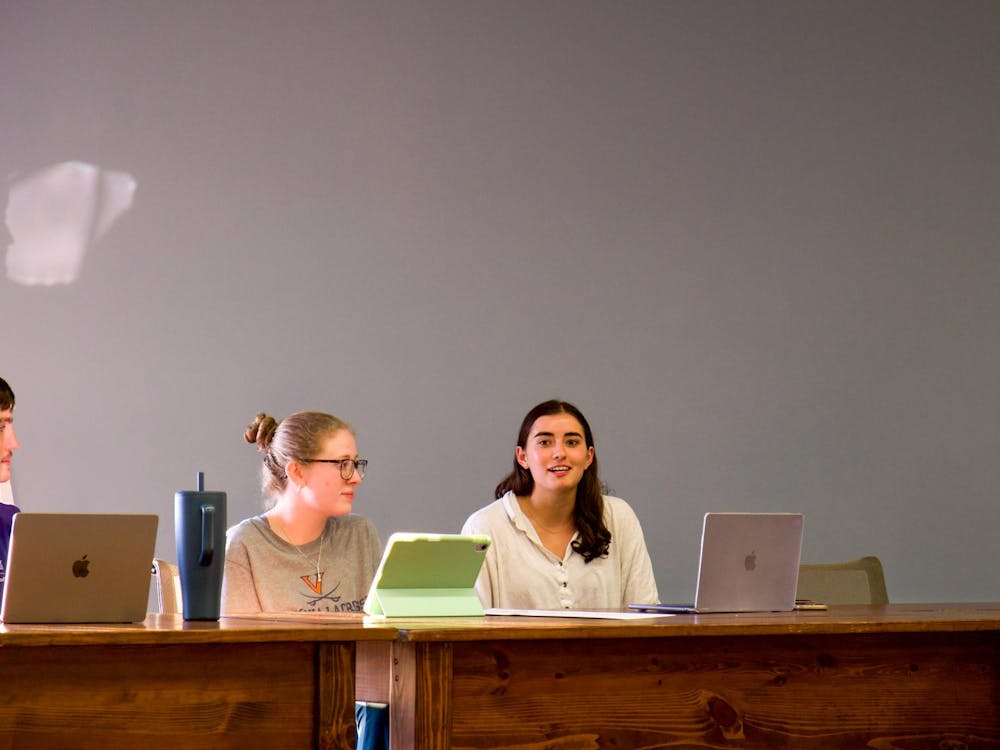The regulation of global markets was one of several key topics of discussion at yesterday’s sessions of the Mortimer Caplin Conference on the World Economy, held yesterday and today in the Rotunda and in other locations around Grounds.
Former finance ministers from 13 countries have gathered at the University for a two-day conference titled “The New Financial Architecture: A Global Summit.” Sessions are focusing on structuring the international finance system and developing a blueprint for global economic management. Discussions yesterday were organized in a free-response format; delegates conversed in their respective languages with the aid of headphone sets and translators.
When it was first planned, the conference was viewed as a better way to look at the issue of the changing American economy, Todorovich said, but after some consideration, conference organizers realized countries “do not exist in a vacuum.”
“All different countries affect each other,” she said, “so they decided to expand [the conference] to focus on the world economy.”
The second session yesterday, moderated by David Wessel, the Global Economics Editor for the Wall Street Journal, focused on the role of international financial institutions and potential regulations on global commerce. As a means of initiating debate, Wessel posed the following question to the council: “What practical advice can you give to your successors?”
Participants responded by discussing enterprise risk management, economic regulations, and the role international institutions, such as the International Monetary Fund, should play in global economic policies. How — and to what degree — global markets should be regulated was a popular topic of debate.
Former Canadian Minister of Finance John Manley noted that oftentimes domestic economic policies take precedence over international issues, but said this should not stop countries from striving to achieve a better balance of participation in the global market.
According to Rodrigo de Rato y Figaredo, former Minister for Economic Affairs of Spain, however, many countries are not willing to give up their sovereignty in order to enforce international financial regulations. Participants discussed the possible benefits of establishing more specific regulations, as well as what would be required to enforce such new rules.
To alleviate problems in global markets, some delegates favored a stronger role for organizations like the IMF, while others argued in favor of increased national sovereignty.
“It [the IMF] has a very important role to play ... but is not the risk-cop of world,” former U.S. Secretary of the Treasury John Snow said, noting that the IMF should not concern itself with managing how much money some countries invest in other countries.
“To be effective, the IMF should focus on what it can do,” Snow said.
Han Duck-Soo, former Prime Minister of the Republic of Korea, meanwhile, said countries need “more dialogue and heeding of attention” to regulation and innovations in order to maintain the balance between interconnected international institutions. Such an increase in dialogue would spur ideas and solutions to current financial issues in the global market, some participants agreed.
“The basic issue here is do we have the appetite for fundamental change?” former Indian Minister of Finance Yashwant Sinha said.
As conference participants continue to discuss such questions today, the Miller Center is already looking toward the future; according to Lisa Todorovich, assistant director of communications for the Miller Center of Public Affairs, the Mortimer Caplin Conference is projected to become an annual event.
Mortimer Caplin, for whom the conference is named, said he was “very satisfied with the way that the former ministers opened up” at the summit, adding that he is looking forward both to sessions today and in the future.
As for the possibility of that future, “the door is open” to international participants, Todorovich said. The 13 former foreign finance ministers in attendance this year represented the countries of Iraq, Australia, the Republic of Korea, Germany, Afghanistan, Kuwait, Canada, Brazil, India, Spain, the People’s Republic of China, Italy and the United States. Two guest participants were also in attendance, from Japan and the McKinsey & Company’s Middle East office.
The event was presented by the Miller Center in conjunction with CNBC and the Wall Street Journal.






